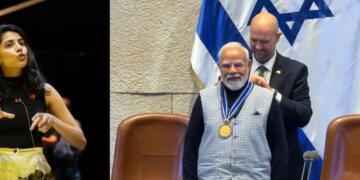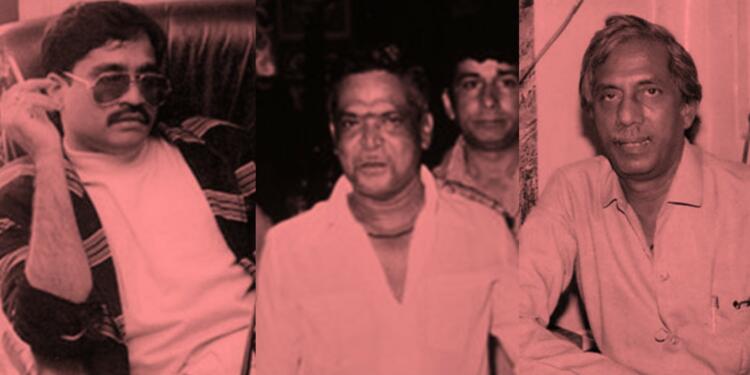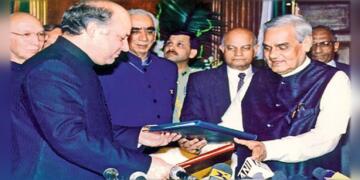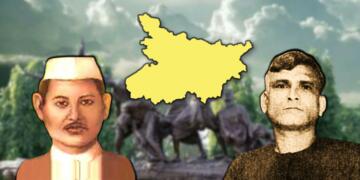Officially, India is a highly decentralised Constitutional Democracy. But unofficial power corridors do exist. No point for guessing that politics is always a cornerstone of power. In fact, it is almost an official one. Others are soft things like Bollywood and Cricket. They are the sectors where the monetary gains are legitimised in the eyes of law-enforcement agencies. Today it is tough to believe, but there was a time when only few people stationed in Mumbai used to control all of these corridors. Control was so much larger that it can be termed as “tyranny of the unelected”. It was in fact more systematic than any democracy could ever conjure up, hence giving the birth to the term organised mafia.
The inspiration
The practice of Mafia raking up Mumbai really kicked off in the second half of the 20th century. Though the foundation was put up in the early 1930s and 1940s. Possibly the inspiration for control over a particular territory was drawn from the stories of how Italian mafias of Chicago controlled the government of their respective cities. In 1920s-1930s, they did it by taking over mugging, gambling, prostitution, and bootlegging businesses of local politicians.
Things were almost a Carbon-copy in Mumbai. Mumbai’s first tryst with non-monarch supremacists was with 3 gangsters namely Varadarajan Mudaliar, Karim Lala and Haji Mastan. Later various individuals joined them to gain money and lots of them ended up carving out their own territory.
Entry of Varadarajan Mudaliar
The credit for establishing the first non-monarch dominion in Mumbai goes to Varadarajan. People of the time were just recovering from British hegemony and needed someone to take over the reins of the city. In other words, they were looking for a virtuous one-man rule in the city, because deep inside they knew that too much checks and balances destroy the system.
Thus enters Varadarajan with all the credentials one could have to win people’s hearts. He had migrated to Mumbai at the tender age of 19. Initially he worked as porter at VT station. Here he began stealing dock cargo. Soon he ended up capturing the smuggling business going on through sea. It helped him gain control of the illicit liquor business and various other activities.
Absolute control of Varadarajan
His covert power kept increasing while his Tamil brethren were unaware of it. To increase his influence among masses, Varadarajan, a Murugan Bhakt in Tamil Nadu started to hold massive Ganesh utsavs in Mumbai. The massive spendings helped him gain clout with the Police as well as local Mumbaikars. Poor Tamilians living in areas such as Matunga and Dharavi used to respect him for that.
Soon his words became the law and people started approaching him for settling personal as well as other disputes. His words used to be the final authority. His business started to expand and these Tamil localities became nucleus of protecting his illegal assets such as narcotics and contract killers who worked under him. In case things went haywire at the local level, his connections with the political brass used to do the damage control.
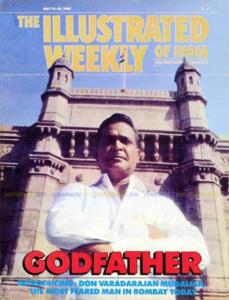
Haji Mastan’s foray in Mumbai
But it was not possible to do it all alone. In spite of him having absolute control, the voices of otherwise silent rebellion used to crank up. One of them was a person born on the same day as Varadarajan. His name was Mastan Mirza, popularly known as Haji Mastan or Sultan Mirza. He left Tamil Nadu for Mumbai at the tender age of 8. Just like Varadarajan, he also started his criminal journey by stealing at the docks.
Haji earned reputation first as a petty smuggler of things such as Phillips Radio, watches, and other items considered luxury among people of that era. Talking about luxury items, Gold was a luxury in India, which the British had left in tatters. Mastan saw an opportunity and ventured into smuggling of items availed by top brass of the financial capital of India.
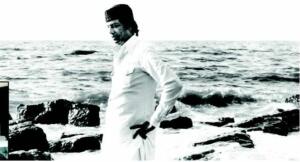
Haji and Varadrajan joined hands
Though it is still not clear whether Haji Mastan wanted to topple him, still necessities of the day brought them together. Haji had excellent reach in the customs office but he was not in the good books of law enforcement agencies and their political masters of the day. Haji desperately wanted a powerful position and respect among the masses. Varadarjan had all that Haji did not.
Additionally, Varadarajan’s religion and his fame as the Bhakt of Bhagwan Ganesh was also not a cause of concern for the radical section of Haji’s sect. Varadarajan was quite popular among people visiting Dargah due to his proclivity towards feeding poor people sitting outside these places.
Karim Lala handled South and Central Mumbai
On the 3rd but relatively small end of the underworld faction existed an Afghani migrant called Karim Lala. He was the eldest of the 3 and was the leader of the Pathan Gang. To avoid conflict, the 3 together had divided Mumbai into 3 parts. Lala used to control South and Central Mumbai.
His area was mainly confined to crime-infested Muslim ghettos of the city. Illegal gambling, illegal money recovery, illegal land evictions, kidnapping, protection racket (hafta), contract killing, distribution of narcotics, and counterfeit currency were the areas in which he specialised in.
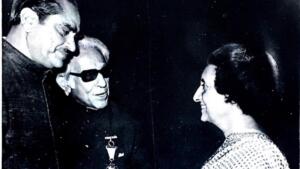
Hobnobbing with Producers
All 3 Dons had contracted to not interfere in each-other’s zones. In spite of them coming together, these 3 were starkly different in their personal morals. Karim Lala and Varadarajan had cultivated a principled image for them. It is well known among the crime circles that both did not even used to look at women.
However, both hobnobbed with Bollywood stars. At that time, stars used to hold utter disrespect for cabin crew and other people involved in the background of film making. They were infamous for making them wait for hours, just to finish their makeup.
The producers were fed up with it and they used to pray for divine intervention. But the intervention came from non-divine sources. Producers started to pay the underworld to stop this phenomenon. The return on investment was higher since soon shooting timings got shorter and ended up leaving more space for producers to produce more.
How Haji Mastan gained trust among stars
But not every actor was bad for the underworld. One of Lala’s close friends was Mohammad Yusuf Khan aka Dilip Kumar. The Pathan brotherhood was infamous in Bollywood. This brotherhood helped Dilip Kumar get closer to Haji Mastan, the story of which is more prominent in Bollywood folklores.
Friendship with Mohammad Yusuf Khan enabled Haji Mastan to come in contact with actresses. He developed a strong infatuation for Madhubala. In her memory, he married Shahjehan Begum, a lookalike of Madhubala.
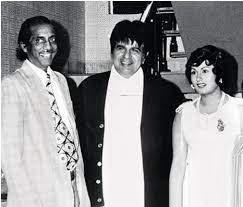
Varadrajan’s exit and entry of Dawood
The onset of emergency changed the scenario and Varadarajn, the most powerful of the 3, was the first to bear the brunt. Police started to target his close aides and soon it became impossible for him to live in Mumbai. Resultantly he fled to Chennai. Haji Mastan, having no particular animosity against Varadarajan became a natural heir and he started to control the areas erstwhile under Varadarajan.
By the time Varadarajan left Mumbai, Mastan had developed his own clout in power circles of Mumbai. Parallelly, a young guy named Dawood Ibrahim was making inroads into the gangster circle. Even during his teens, he was committing fraud, theft and robbery. Once Haji Mastan was asked by Ibrahim, Dawood’s father, to get him involved in a job. Later, he joined a local gang and after gaining enough confidence started his own gang with elder brother named Shabir Ibrahim Kaskar.
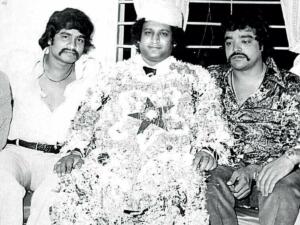
Dawood’s expansionary business
Dawood started to make a separate name for himself in areas such as contract killing, gold smuggling, extortions, drug trafficking and real estate deals. His growth was exponentially exacerbated by the killing of his elder brother by the Pathan Gang of Karim Lala. Dawood became the only boss of D-Company. He started hiring people like those in the government. Dawood used to pay a monthly salary to his people in order to get his work done seamlessly.
Dawood was probably the earliest of the bunch who pioneered the idea of extorting money from producers for things other than getting stars to parade. He saw opportunity in the film distribution business. He acquired distribution rights and later overseas rights before turning into a full-fledged producer. It is needless to say that him being based in Dubai helped a lot. However, it is worthwhile to mention the full extent of his business.
Cricket, Bollywood and D-company
D-company loved to have its own harems and stars used to fly to Dubai for it. For the stars, No was not an option when Abu Salem, a key henchman of Dawood used to ask them for anything. That is how Sharjah Cricket stadium became another money churning machine for him.
With the arrival of film stars, match fixing started to expand its footprints in cricket. Interestingly, match fixing was a white business in the Underworld. They only had to fix a few key players and share the gains of betting with them. ROI (Return on Investment) was too humongous and lucrative to ignore.

Changing political climate and involvement of D-company
Back home the political environment had started to shift. Hindutva had started to expand and communal violence started to become common. An aggressive pro-Hindu organisation was becoming popular. Youth, which otherwise would have been hired by D-company for small stuffs, was eager to join the new trend.
By the end of 1980s, D-Company had superseded Haji Mastan as the king of Mumbai. Resultantly, if Dawood went haywire, there was no legitimate underworld power to control him. On the other hand, the bloodshed due to gang wars in late 70s and early 80s had pushed police towards crackdown on locals involved with the underworld. Political connections were there but Police had to strike a balance.
Dawood’s role in 1993 blast
However, due to his indulgence in political issues, Dawood ended up losing political support as well. As soon as Babri Masjid was demolished in December 1992, communalism started to grip the whole of India. Mumbai was also not untouched. Dawood decided to pour his money in order to assist Islamists attacking Hindus. But Shiv Sena did not let it succeed. Resultantly, D-company followed another strategy.
They decided to rock the city with serious bomb blasts. In 1993, nearly 2000 Mumbaikars were directly affected by these blasts, with 257 people losing their lives. It is here that Dawood started to lose the plot. His original ambition was earning more and more wealth and gaining more power. In wealth religion did not matter and that is why Dawood was highly popular in political circles. But as soon as he poured money into communalism, pushback started to hit him.
Chota Rajan’s revolt and Dawood in hiding
Up until now, Chhota Rajan was working under the shades of Dawood. He got the opportunity to present him as a patriotic gangster who did not kill his own people. Both have been involved in bloody disputes with their gurgas losing their lives. While Rajan was subject to assassination attempt by Dawood, he claimed that his men have gunned down 10 terrorists responsible for Mumbai blast.
Meanwhile, Dawood had come under the hitlist and he was a target for INTERPOL. The responsibility of running his Bollywood operations was on Abu Salem and others in close cahoots with him. In the name of Dawood he extorted millions and possibly billions from producers, actresses and directors. Famed faces like Subhash Ghai, Manmohan Shetty, Rakesh Roshan, and Gulshan Kumar among others received threatening calls.
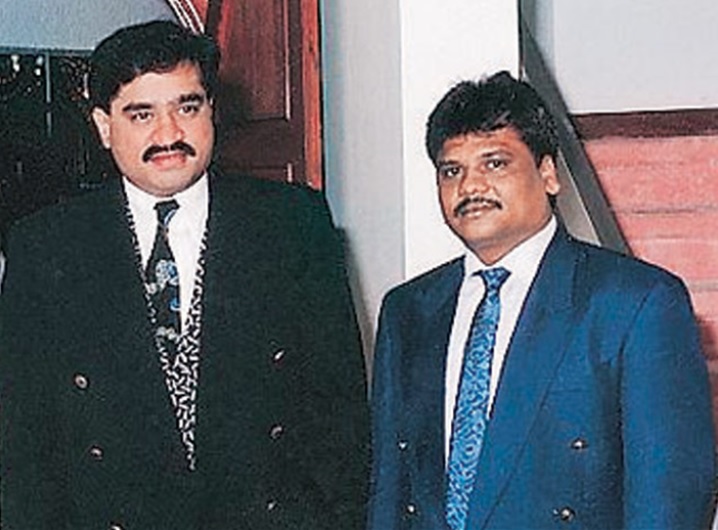
Bollywood: Hedge fund for Underworld money
Both Roshan and Gulshan Kumar were subjected to assassination attempts as well. Rakesh Roshan somehow survived and recovered from injuries. But Gulshan Kumar could not survive. Underworld wanted him to pay Rs 10 crore, but Gulshan resisted. They surveyed his routine for 1 month and murdered him in broad daylight. The fear emanating out of this brutal murder ensured that The D-Company kept getting more funds by extorting from Bollywood, in effect creating a round-trip transaction.
Beyond the complex jargon, let’s understand this trade in simple words. Dawood Ibrahim and people under him extorted money from Bollywood. Since this money was illegal, they had to find a way to convert it into white. For this purpose, they started financing movies and other products of Bollywood including music.
In short, Bollywood became a big hedge fund for the underworld to park its money. ROI (Return on Investment) in fact is greater than that, but the damage is way beyond financials. The murder of Gulshan Kumar paved the way for de-Hinduisation of Bollywood. Though, in the last eight years, the impact of it has diluted to a certain extent. Except Dawood, most of the underworld is under control, but the money is still there and so is the influence.
Support TFI:
Support us to strengthen the ‘Right’ ideology of cultural nationalism by purchasing the best quality garments from TFI-STORE.COM





